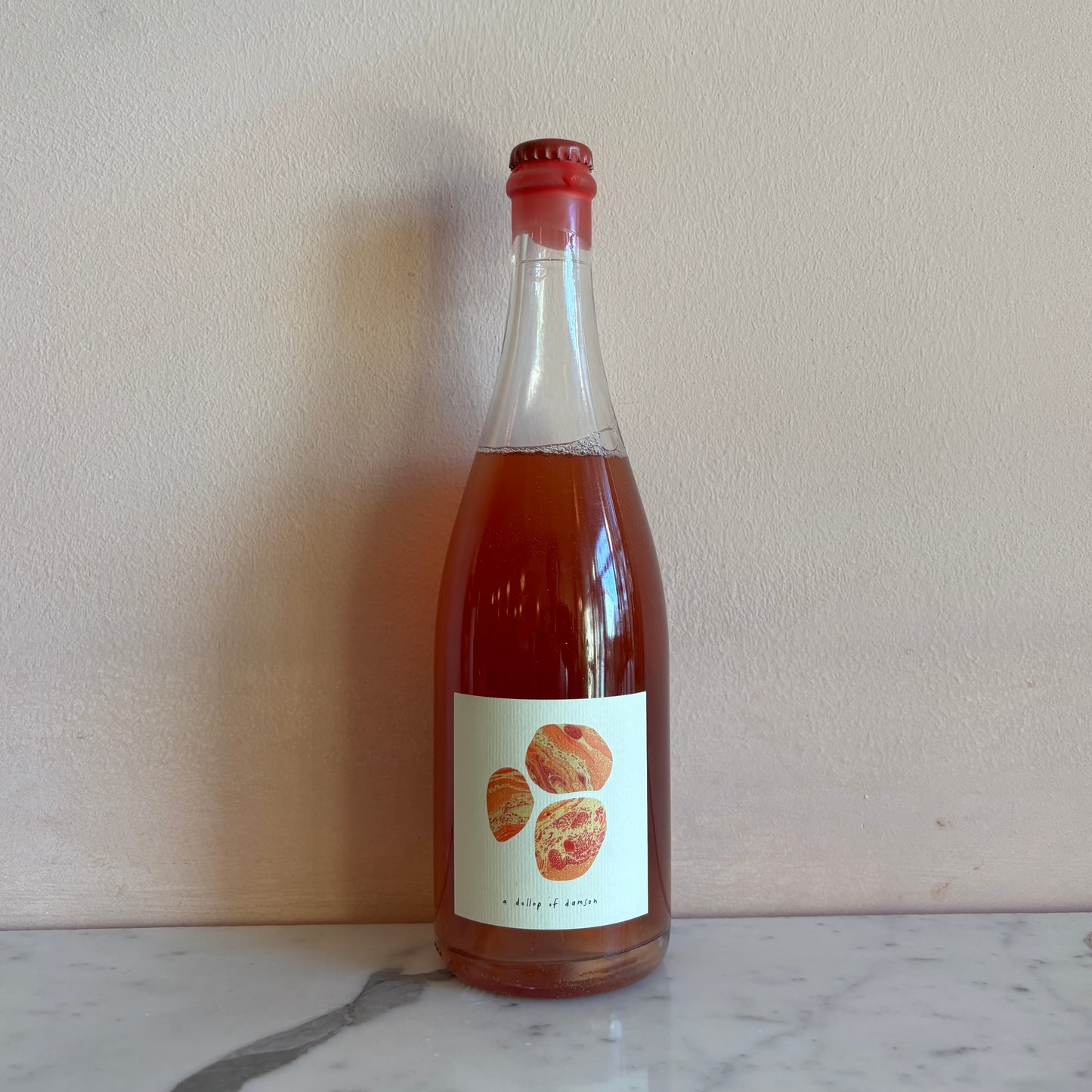Troddenvale
Troddenvale "Dollop of Damson" Plum Cider, Loudoun County, Virginia 2024
Troddenvale "Dollop of Damson" Plum Cider, Loudoun County, Virginia 2024
Low stock
Couldn't load pickup availability
FROM TRODDENVALE:
THE CIDER: 46% Vidal Blanc, 19% Ribston Pippin, 12% Virginia Hewe’s Crab, 13% Damson Plum, 10% Harrison. In 2024, Damson plums were more scarce than normal, forcing us to broaden our search to other parts of Virginia. We were fortunate to be connected with Andrew of Great Country Farms in Loudoun County who had an old plum orchard planted decades ago. Although Traminette was a welcome addition in 2023, we were not able to secure any for this vintage. These adjustments shift this wine back to the profile of 2020 and 2021 vintages; less tropical and more bitter grapefruit. Red currant concentration and tight, precise acid keeps in line with the higher carbonation. We are excited to see how this leaner and more nimble vintage evolves in bottle after disgorgement. As always, this ever evolving bottling is intended to showcase the unique capacity of multi-fruit coferments as a distinctive Virginian wine.
THE PRODUCER: In their own words: “Troddenvale roughly translates to the ‘valley road’ and is inspired by a lengthy history of visitors traveling to the cradle of Virginia’s Warm Springs Valley. Translated through our cider, we strive to preserve this valley’s treasured history, its spring water, forgotten orchards, and furthermore, we seek an opportunity for new stories to be told - of the land, the soil, and the people. We are focused on revitalizing fruit growing for cider production in our mountain region of Virginia. We believe that dedicating our efforts to where fruit is grown and how will lead us to achieve the greatest potential in our cider.”
In their efforts to support the broader region, they glean a lot of fruit from old abandoned orchards and seedlings on the perimeters of properties. However, they also consistently buy fruit from growers in the area, working with them to improve their agricultural practices even if the farmers are resistant to organic/regenerative agriculture. Will and Cornelia planted a home vineyard (pictured above) to many varieties and are farming it according to regenerative principles. They have also started a food share (basically a farmer’s market) that’s transforming the region’s agriculture; their chicken farming neighbors now sell the majority of their chickens to customers in Western VA.


